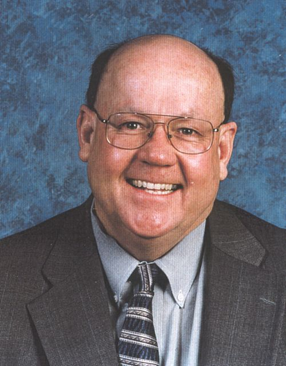
This is to announce the bittersweet news that our friend and colleague Professor Larry Burd has retired.
A retirement reception was held on Friday 20th June at the University of North Dakota.
Larry is a big name in the world of FASD. He was a professor in the department of paediatrics at the University of North Dakota, and director of the North Dakota Fetal Alcohol Syndrome Centre.
As well as providing first-class assessment, care and advice for people with FASD and their families at his clinic, Larry has contributed an enormous amount to research on FASD.
He has written hundreds of journal articles on FASD including influential papers on prevalence, economic cost, comorbid conditions, biological mechanisms, and recognition and management. He has written books and book chapters, and has delivered keynote speeches at several academic conferences. He is also a member of the Professional Advisory Panel for Irish FASD organisation ÉNDpae.
Larry was foundational in the development of our caregiver support programme SPECIFiC. He generously crossed the Atlantic to be part of our expert advisory event and delivered a keynote speech at the first Salford FASD conference at Media City in December 2019.
Larry told us he will continue to do some work related to FASD, mainly around advocacy in the criminal justice system and working with researchers to plan for FASD impact. He is also looking forward to spending more time fishing!
Professor Raja Mukherjee said: “I have had the pleasure to know, work with and be influenced by Larry over many years. His wisdom and sensible guidance have been a beacon to many of us over the years. He will be a very sad loss to the community, and we can only wish him well as he moves in to the next phase of his life. I feel sorry for the fish!!”
Professor Penny Cook said: “We’re hugely grateful to Professor Larry Burd for the insight, warmth and expertise he’s shared with us over the years. As plenary speaker at our very first Salford FASD conference, and through his support of our caregiver programme, Larry helped lay strong foundations for our work. We wish him all the very best in his retirement — his influence will continue to be felt across the field, and by all of us lucky enough to have worked with him.”
Maria Catterick of FASD Network UK said “I have had the privilege of getting to know Larry Burd over a number of years. He has an incredible wealth of knowledge of FASD from his eye witness accounts and involvement in the development of our shared understanding of FASD over the past four decades. You would think that someone so central to this FASD journey of research and clinical practice would be too busy to deal with enquiries from parent carers and FASD organisations like mine, but Larry has been outstanding with his generosity of time and his kindness to explain recent research and complex concepts so that they can be understood and implemented by the lay person as well as the entire FASD community. Larry, you are one of a kind and I want you to know that you have made such an impact not only to me, but also to the thousands of FASD families I support who are recipients of your insights. As you come towards your retirement, you may be thinking about the tangible legacy you have left behind from your career. Larry, your legacy is not in all that has gone behind, it is in all the people you have influenced who are moving forwards carrying the baton of FASD. You have run an extraordinary race, and your legacy is an army of families, adults with FASD, FASD organisations, researchers, doctors, and all manner of clinicians and educators who are your living, breathing, ongoing, multiplying legacy.”
Dr Rod Densmore, a Canadian physician who specialises in FASD, said: “When stumped and out of ideas I’ve had the privilege over the last few years of reaching out to Larry and his strategies have been much appreciated by people with FASD, their loved ones and myself. For example, how to help a single dad who was overwhelmed by his 14 year old daughter’s behaviour and frustrated he could not get a diagnosis for her ‘because her IQ was too high’. Larry wisely noted that behaviour and performance on days that were not just her best days should be considered when doing assessments. She was eventually diagnosed and received a useful individualized education plan, and importantly, the tension between her and her dad settled down.”